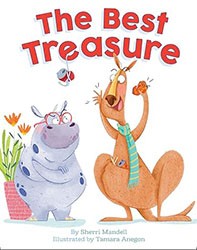Sherri Mandell delivers a succinct book on loss, grief, and the journey towards healing. Her work emanates from her personal experiences, most profoundly the death of her teenage son in a violent attack in 2001. The murder of Mandell’s son has shaped much of her professional experience as a pastoral counselor in the past decade, and The Road to Resilience—part textbook, part memoir — reflects the extent to which overcoming such a devastating loss can become an all-encompassing and ultimately empowering experience.
The book is extremely well organized, with a chapter devoted to each of the seven “spiritual stages” that Mandell defines as steps that will help the reader address personal suffering. While she presents these “seven C’s” in a particular order, she does not intend the book to be a step-by-step guide. Each chapter is sufficiently well delineated to effectively stand alone, and is accompanied by a set of questions for reflection directly related to that particular chapter’s topic. It is certainly possible and rewarding to read the chapters according to what seems to resonate most strongly, rather than what’s on the next page. Readers may well want to jump around in the book, scanning some ideas, and may find themselves returning to review some chapters often, while leaving others almost untouched.
The end of chapter questions give the text more of a workbook feel, and it’s a shame that the publisher didn’t leave more space in the book for readers to record their thoughts. Some additional information in the introduction about how to use the questions, either to facilitate discussion or to promote greater introspection, would have added even more value to what is an excellent set of tools.
Unsurprisingly, Mandell’s spiritual focus is almost entirely framed by traditional Judaism. Her unapologetic clarity on the ability of Jewish teachings to be her primary source of spiritual support adds strength and authenticity to her voice as the author. Readers who are less familiar, or maybe less comfortable, with Jewish texts and practices may find her tone somewhat heavy-handed. Because Mandell draws so much from her personal own experience, the balance between “this is what worked for me in my grief” and the more universal “this is what one can learn from these sources” is sometimes difficult for her to maintain.
An essential part of Mandell’s professional work is dedicated to her son, and the foundation that she and her husband established following his murder. She describes the foundation as an example of the way in which resilience ideally leads to growth: after a loss, the goal is not to find a new normal, but to “find a new extraordinary.” This allows Mandell to move beyond the discussion of loss and to inspire anyone who wants to make a difference in the world.
Mandell tells her readers that they have more inner strength than they might believe they possess. While Mandell hopes that no one experiences the pain that led her to discover her own capabilities, this book will inspire readers to think bigger dreams for themselves, for their families, and for their communities.
Related Content:
- Reading List: Death and Mourning
- Julie R. Enszer: The Act of Writing a Poem
- Interview with Judith Frank, author of All I Love and Know





